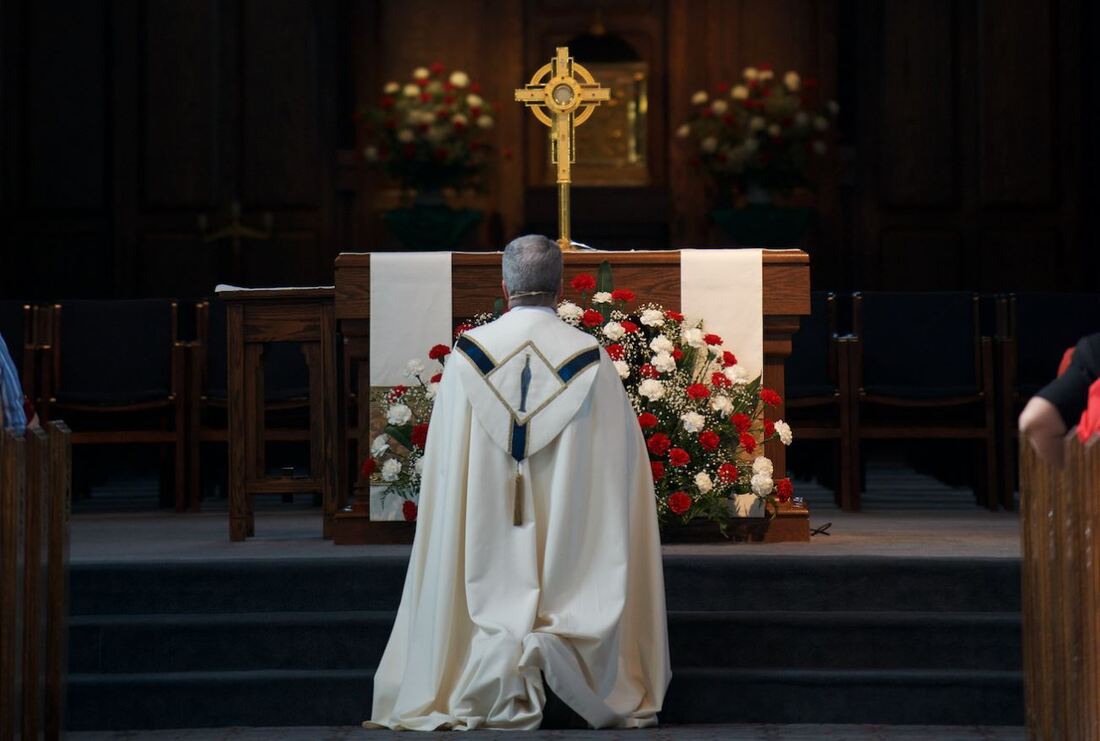|
As the Season of Lent begins, it is a good time for us to seek an interior renewal and to face the distracting attachments and preoccupations that have become part of our often very busy lives. These forty days serve to remind us of Christ’s journey into the desert. The Catechism of the Catholic Church (CCC) tells us that “Jesus' temptation reveals the way in which the Son of God is Messiah, contrary to the way Satan proposes to him and the way men wish to attribute to him. This is why Christ vanquished the Tempter for us: “For we have not a high priest who is unable to sympathize with our weaknesses, but one who in every respect has been tested as we are, yet without sinning. By the solemn forty days of Lent, the Church unites herself each year to the mystery of Jesus in the desert. (CCC, 540) It is this Lenten discipline of penance, renunciation, and detachment which reawakens within us the awareness of our dependence on God and His great love for each of us. While retreating to the desert might be impossible on a practical level, our Lenten observance of penance, abstinence, prayer, and almsgiving helps us to grow in Christ daily and to avoid temptation. In particular, the psalmist’s refrain, “Be still and know that I am God” invites us to be attentive to our times of personal and communal prayer. One of the Desert Fathers, Amma Syncletica said, “There are many who live in the mountains and behave as if they were in the town, and they are wasting their time. It is possible to be a solitary in one’s mind while living in a crowd, and it is possible for one who is a solitary to live in the crowd of his own thoughts.” (Benedicta Ward, The Sayings of the Desert Fathers, Cistercian Publications: 1975, p. 19) Listening to God in prayer is an important part of a life of faith. God desires to speak to us and we have the privilege of listening to the promptings of His Spirit through the consolations and desolations with which He graces us during our prayer. William Barclay’s reflection on prayer and silence is often quoted as follows, “… Prayer is a way of offering ourselves to God in order that He should be able to make use of us. It may be that one of our great faults in prayer is that we talk too much and listen too little. When prayer is at its highest, we wait in silence for God's voice to us; we linger in His presence for His peace and His power to flow over us and around us; we lean back in His everlasting arms and feel the serenity of perfect security in Him.” The psalmist writes in Psalm 46, “Be still, and know that I am God! I am exalted among the nations, I am exalted in the earth. The Lord of hosts is with us; the God of Jacob is our refuge.” Walter Brueggemann, a well-known scholar of the psalms, says that some psalms were written for the good times while others were written for the times when the future seemed uncertain and perhaps filled with impending troubles. These psalms were written for people living in times of change and uncertainty who were experiencing feelings of anxiety and even dismay. (The Spirituality of the Psalms, Brueggemann, pp. 19-25.) Psalm 46 provides the reassurance that God is stable when all else seems unstable. At a deeply personal and spiritual level, this is important for each of us. This is the deeper experience of prayer and listening which the time of silence and stillness offers to us. “In the silence of the heart, God speaks. If you face God in prayer and silence, God will speak to you. Then you will know that you are nothing. It is only when you realize your nothingness, your emptiness, that God can fill you with Himself. Souls of prayer are souls of great silence.” (Saint Teresa of Calcutta, In the Heart of the World: Thoughts, Stories and Prayers) Let us embrace this season of Lent as a time to “be solitary in one’s mind.” (Benedicta Ward, Ibid.) If we allow God’s grace to renew our hearts during this Lenten season through prayer, then in the solitary stillness of such experiences we will know His great love, wisdom, and charity and be moved more generously to witness and share this with others.
3 Comments
Veronica Rochford
3/12/2020 10:40:09 pm
Dear Bishop McGrattan,
Reply
Rob Henderson
3/13/2020 10:15:00 am
Thank you for the words about listening prayer and of waiting expectantly.
Reply
Suzanne
1/3/2022 09:17:16 am
For me, I think of this verse in terms of God's reply to Job. He is God, we are not. Quit trying to think you can do all yourself as if you were God. You cannot. Recognize your weakness and know that God alone is in charge.
Reply
Your comment will be posted after it is approved.
Leave a Reply. |
Author
Catholic Pastoral Centre Staff and Guest Writers Archives
July 2024
Categories
All
|


 RSS Feed
RSS Feed